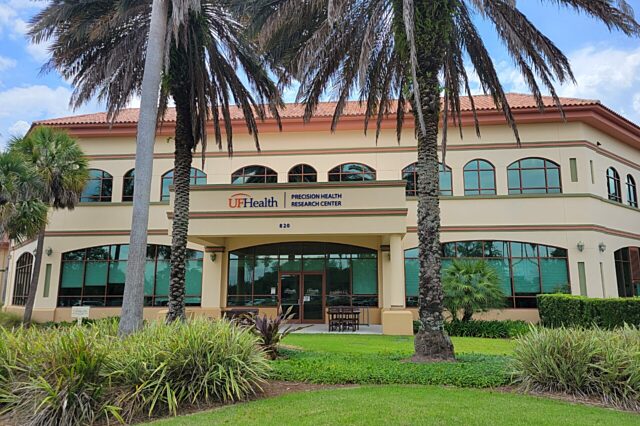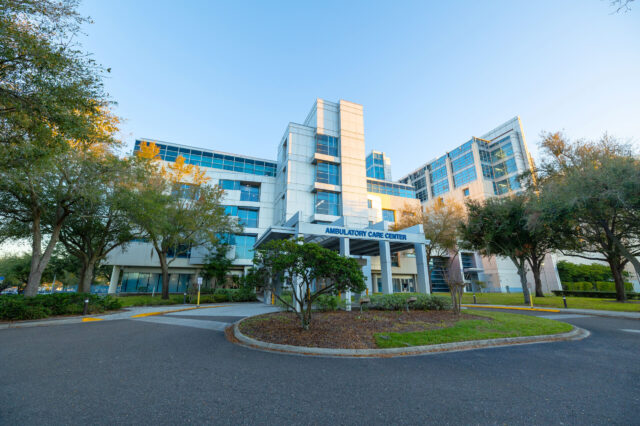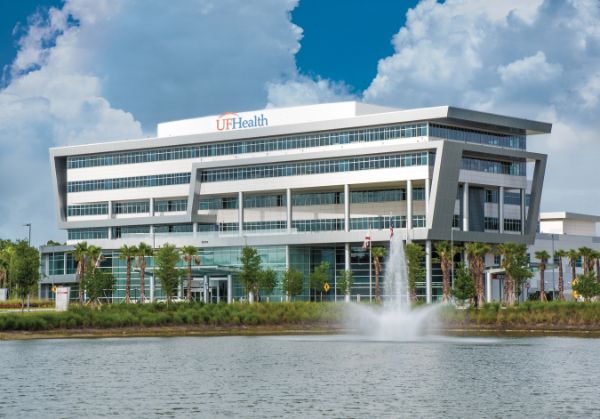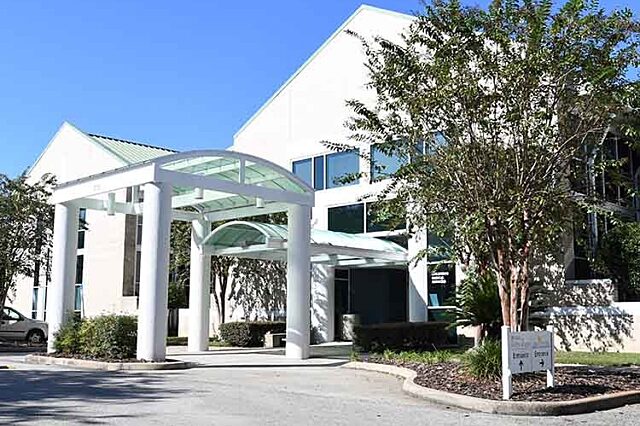Uf Health Precision Health Research Center

UF Health Shands Hospital launches the Precision Health Research Center (PHRC) aiming to revolutionize patient care through individualized treatment strategies based on genetic and lifestyle data. The initiative promises faster diagnoses and more effective therapies, signaling a new era in healthcare delivery.
The Precision Health Research Center (PHRC) at UF Health Shands Hospital is poised to transform healthcare by integrating cutting-edge research with clinical practice. This allows doctors to tailor treatments to each patient’s unique needs. The PHRC will leverage advanced genomic sequencing, data analytics, and artificial intelligence to achieve more personalized care.
Center Launch and Objectives
The PHRC, officially launched this week, will focus on identifying disease risks early. It also seeks to develop targeted interventions that prevent illness and improve treatment outcomes. Dr. David Nelson, Director of the PHRC, emphasized the center's commitment to translating research discoveries into tangible benefits for patients.
The primary goal is to move beyond "one-size-fits-all" medicine. The goal is to deliver customized care that considers an individual’s genetic makeup, environmental exposures, and lifestyle factors. This will improve diagnostic accuracy and enhance therapeutic effectiveness.
Key Research Areas
Initial research areas will include cancer, cardiovascular disease, neurodegenerative disorders, and infectious diseases. These areas were identified due to their significant impact on the health of the population served by UF Health. The PHRC will collaborate with researchers across the University of Florida to tackle these complex health challenges.
The center plans to utilize large-scale genomic sequencing to understand the genetic basis of these diseases. Advanced data analytics will then be applied to identify patterns and predict individual risk. The PHRC will also investigate the role of environmental factors, such as diet and lifestyle, in disease development and progression.
The center is particularly interested in addressing health disparities in underserved communities. Dr. Nelson highlighted the importance of ensuring that the benefits of precision medicine are accessible to all populations, regardless of socioeconomic status or geographic location.
Infrastructure and Technology
The PHRC is equipped with state-of-the-art facilities, including advanced sequencing technologies and high-performance computing resources. These tools will allow researchers to analyze vast amounts of data quickly and efficiently. The center also features a biobank for storing biological samples, facilitating future research endeavors.
A dedicated team of bioinformaticians, data scientists, and clinical researchers will work collaboratively at the PHRC. They aim to translate research findings into clinical practice. The center is committed to fostering a collaborative environment where experts from various disciplines can contribute their unique expertise.
Patient Involvement
Patient participation is crucial to the success of the PHRC. Patients will be invited to participate in research studies. They will also provide valuable data that will inform future treatment strategies. Informed consent and data privacy will be prioritized to ensure ethical and responsible research practices.
The PHRC is developing educational resources for patients. This will help them understand the principles of precision medicine and the potential benefits of participating in research. This information allows patients to make informed decisions about their healthcare.
Funding and Partnerships
The PHRC is supported by a combination of internal funding from UF Health and external grants from federal agencies and private foundations. Significant investments have been made to build the infrastructure and recruit top talent. These are necessary to drive innovation in precision medicine.
The center is actively seeking partnerships with industry leaders in biotechnology and pharmaceuticals. These partnerships will facilitate the development and commercialization of new diagnostic tools and therapies. Collaboration is essential for accelerating the translation of research findings into clinical practice.
Immediate Impact and Future Directions
The PHRC plans to launch several pilot projects in the coming months. These will test the feasibility of implementing precision medicine approaches in clinical settings. These initial projects will focus on conditions where personalized treatment strategies hold the greatest promise for improving patient outcomes.
Over the next few years, the PHRC aims to expand its research portfolio and develop new diagnostic and therapeutic tools. This will transform healthcare delivery at UF Health and beyond. The ultimate goal is to create a model for precision medicine that can be replicated at other institutions across the country.
The PHRC will host regular seminars and workshops to disseminate its research findings. This will help educate healthcare professionals and the general public about the latest advances in precision medicine. A public website with resources for both patients and researchers is under development.
Future developments include expanding the biobank and incorporating artificial intelligence into diagnostic processes. These advancements will further refine personalized treatment plans. Ongoing data collection and analysis will continuously improve the accuracy and effectiveness of precision medicine interventions.


















